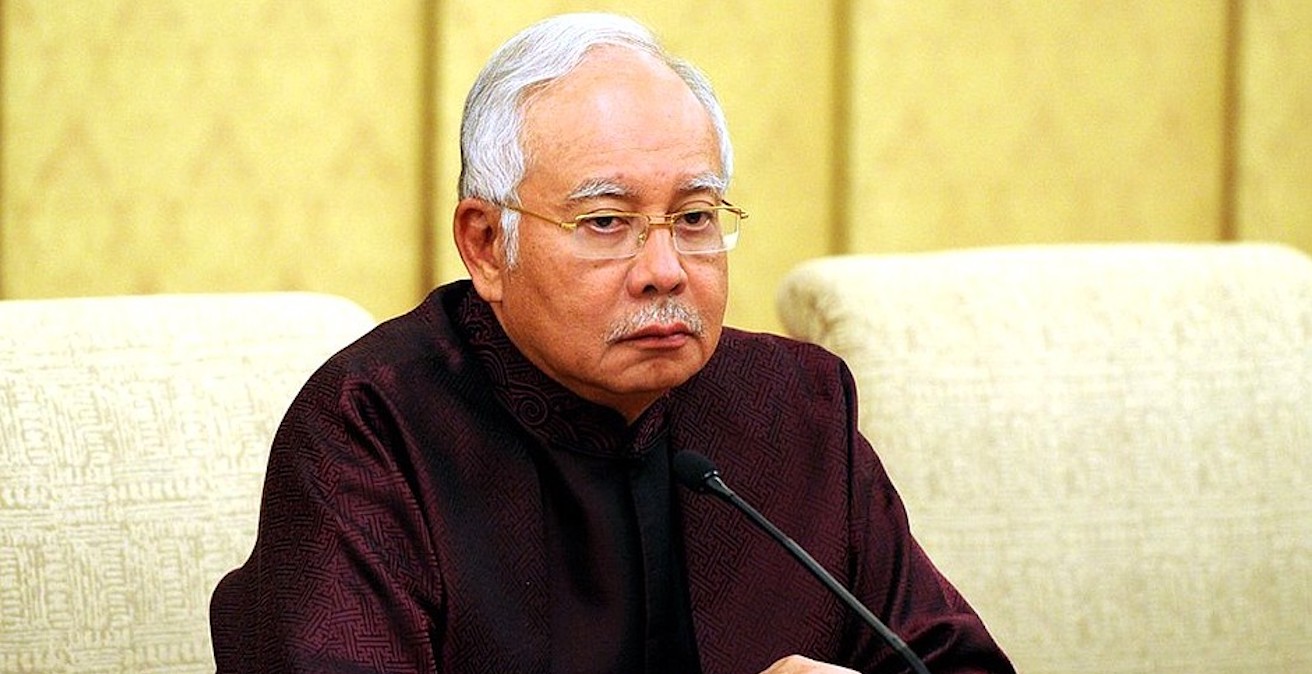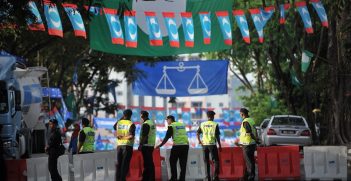What's Next For Malaysia's Najib Razak?

The arrest of Najib Razak, the former prime minister of Malaysia, on Tuesday represents a clean break from the past for all of Malaysia. The end of one-party rule has opened up the possibility of a new era of good governance in the country.
The arrest of Najib Razak, the former prime minister of Malaysia, on Tuesday was widely expected. In fact, many Malaysians were hoping he would be arrested immediately after the ruling party, the United Malays National Organisation (UMNO), was defeated in the May 9 election.
Najib was the main reason why UMNO lost – he was widely seen as corrupt and the main person behind the scandal at 1Malaysia Development Berhad (1MDB), a state investment fund.
US prosecutors have accused Najib of diverting US$731 million from 1MDB into his personal bank account. Many people assume Najib’s arrest is connected to this fund, but legally speaking, he faces charges relating to a company called SRC international, a one-time subsidiary of 1MDB.
SRC took a loan of about US$1 billion from a state-run retirement fund and Najib is alleged to have siphoned off about US$10.5 million from the top. The money allegedly ended up in his bank account, the same account that was implicated in the 1MDB affair.
Najib has denied any wrongdoing, and on Weddnesday pleaded not guilty to the charges.
Why was Najib not charged in the 1MDB probe?
The simple answer is that the 1MDB investigation covers multiple jurisdictions. At the last count, money involved in the 1MDB affair is believed to have passed through the following financial systems: the United States, United Kingdom, Singapore, Switzerland, Australia, Luxembourg, Hong Kong, Thailand, United Arab Emirates, among others.
It is simply not possible to put such a complex case together in such a short amount of time following the election of opposition leader Mahathir Mohamad two months ago.
The good news is that, under the new Mahathir administration, foreign governments will now have access to Malaysian documents related to the 1MDB probe. The US, Singapore and Switzerland are among the countries investigating the scandal. When Najib was in power, all financial institutions in Malaysia refused to cooperate with these foreign probes.
Why is SRC International different?
The key factor here is a star witness, a former director of SRC International who decided to come forward to testify for the prosecution. This individual was too afraid to come forward when Najib was prime minister. That is no longer the case.
There are several key witnesses in the 1MDB scandal who may be thinking along the same lines as the former SRC director. With Najib no longer in control, some of these witnesses may now turn against him, as well.
Top of the list is Jho Low, the accused mastermind of the 1MDB scam. He is believed to be dividing his time between Macau and Taiwan, both places where extradition to Malaysia is not possible.
Another important witness under tremendous pressure to come forward is Tim Leissner, the former Southeast Asia chairman for Goldman Sachs, the bank that handled most of the 1MDB bond sales. He was pushed to resign from Goldman Sachs in February 2016, and both Singapore and US securities regulators have banned him from working again in the financial industry.
An interesting side note is that he is better known in the US as the husband of Kimora Lee Simmons, an American model and fashion designer and the former wife of hip hop mogul Russell Simmons.
What’s next in the Najib case?
By charging Najib, the Mahathir administration is keeping an electoral promise to take action against the former leader. But more importantly, the new government is also sending a strong message to Malaysians and the international community that it is serious about cleaning up the mess left by Najib’s government, especially when it comes to corruption.
For Najib, this will likely be the first of many trials he will face, as more charges are expected in the 1MDB case. It’s also likely that Najib’s family members, including his wife, stepson and son-in-law will face charges, as they are alleged to be direct beneficiaries of the stolen funds.
And this will likely bring an end to the Razak political dynasty in Malaysia for the time being. Najib’s father was Malaysia’s second prime minister and many of his immediate relations used to hold political office. Until the election in May, Najib’s cousin, Hishammuddin Hussein, had been Malaysia’s defence minister.
UMNO will also need to shed its associations with Najib in order to rehabilitate its image among the Malaysian people. Last weekend, the party elected a new president, former Deputy Prime Minister Ahmad Zahid Hamidi.
All in all, Najib’s arrest represents a clean break from the past for all of Malaysia. The end of one-party rule has opened up the possibility of a new era of good governance in the country, which was unthinkable just three months ago. In today’s “new” Malaysia, anything is possible – even calling to account a former prime minister who was just defeated.
More importantly, going forward, the Malaysian public will demand full accountability from their leaders, both past and present.
Professor James Chin is director of the Asia Institute of Tasmania at the University of Tasmania. He is an expert on governance issues in Southeast Asia, especially Malaysia, Indonesia and Singapore.
This article was originally published as “What’s next for Najib Razak, Malaysia’s disgraced former prime minister?” in The Conversation on 5 July 2018, and is republished with permission.





